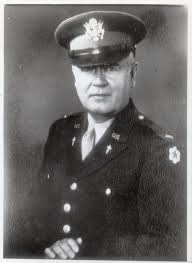In the last article about the Presbyterian Church in Ireland, Graham included a statement about the Christian gospel and how offensive it is:
“The Christian gospel is already offensive enough”
I recoiled, and for a moment began to think, “Is it? Is that really what I think about the Christian gospel?”
And my initial reaction was this, “Actually, no, I don’t find the Gospel offensive at all; in fact I have come to think of the Christian gospel as something which brings me great comfort. Indeed, I have come to think of the Christian gospel as that which brings me the greatest comfort. So why would anyone think it was offensive?”
And all of this caused me to stop in my tracks and rethink why we might describe the Christian gospel as offensive.
Is the news of Jesus, that kindly revolutionary Who accepted and welcomed everyone, especially those on the margins of society, offensive? I must think a little more!
And to do that I’d like to invoke a version of Godwin’s Law:
“”As an online discussion grows longer, the probability of a comparison involving Hitler approaches 1”
The following is a true story.
 In November 1945, an American Pastor and Army Captain by the name of Henry Gerecke arrived in Nuremberg to attend the War Trials. His job was to act as Pastor to 15 of Hitler’s most notorious officers.
In November 1945, an American Pastor and Army Captain by the name of Henry Gerecke arrived in Nuremberg to attend the War Trials. His job was to act as Pastor to 15 of Hitler’s most notorious officers.
Gerecke, a Lutheran pastor, had volunteered for service as an army chaplain in 1943, and following the German surrender in 1945 his unit was sent from England to Germany.
There he visited Dachau and saw first hand what these men had been responsible for: the mass murder of 6 million European Jews.
Blood, he had said, was seeping through the walls.
And so, as one might imagine, he wrestled with the prospect of fulfilling a pastoral role for those guilty of genocide.
It should be of no surprise that his first response was, “No.”
Not only had had been to Dachau, but he and his sons had fought against everything the Nazis stood for, his sons had suffered their own violent trauma, and when offered the opportunity to be Nuremberg’s chaplain, Gerecke almost went home.
“How can I approach them,” he said. “How can I summon the true Christian spirit that this mission demands?”
And so we might ask ourselves what the true Christian message is, and what it might have to say to the German High Command.
In the end he agreed, and for the year following, Padre Gerecke spent time with some of Europe’s most hated men—names which ring through history:
Hess
Goering
Keitel
Sauckel
von Ribbentrop
And during that year, a Lutheran Pastor read the Bible, organised prison services, and shared the Gospel.
A Gospel that required they repent of their sins; for, as he preached, he called them to confession and to place their faith in Jesus for forgiveness and rescue from Hell.
Some refused to lend any credence to the idea. Goering, for example:
“This Jesus you always speak of,” he said to Gerecke, “to me he is just another smart Jew.”
And in a final meeting with Gerecke, told him that he would take his chances, before swallowing cyanide he had hidden in his cell.
Among others, however, Keitle and Sauckel prayed for mercy and placed their trust in Jesus.
And then, in October 1946, while standing on the trapdoor of the gallows, the Foreign Minister of the Reich, Joachim von Ribbentrop, was asked for his final words and he declared that he had placed his confidence in the blood of the Lamb Who took away the sins of the world; and he turned to Gerecke and said, “I’ll see you again.”
With that von Ribbentrop dropped through a trap door, and into the arms of his Saviour.
And even though I’ve known this story for a long time, it has returned to my mind with this talk about the offensiveness of the Christian Gospel.
And the offence is this:
First, that these men, those guilty of genocide, are, by faith in Jesus, forgiven and are as those without sin. And they are now also good, not because of what they have done, for very obviously they have done the very opposite of what is good, but good because of Jesus.
And secondly, that my comfort is derived from knowing that in my own life, although not guilty of genocide, or much anything close according to the measurement of this world, I am, in the the eyes of God, equally sinful and in need of forgiveness—a forgiveness which is the result of God’s mercy, and which is known by faith in Jesus alone.
And the Christian gospel says the same to each of us. It says that those of us who are good enough and who are well enough don’t need a doctor. If we’re good enough, we don’t need Jesus, and we don’t need the Church. But it also says that Jesus, is the only One Who can make any of us good.
Which is something of a catch 22.
And that, I suppose, is offensive enough, and is a hard rhetoric to hear, for it means I must identify myself with the von Ribbentrops of this world and seek mercy. But to those who know they are not good it is of immense comfort and a reason for joy. And that forgiveness also restores a relationship with our Creator which Christians know will fix broken hearts, and bring a peace an security otherwise unknown in this world—but we cannot have the one without the other.
Christianity, then, offends us all for it promises forgiveness those we have deemed worse than us, and it goes on to say that I need to same forgiveness too.

